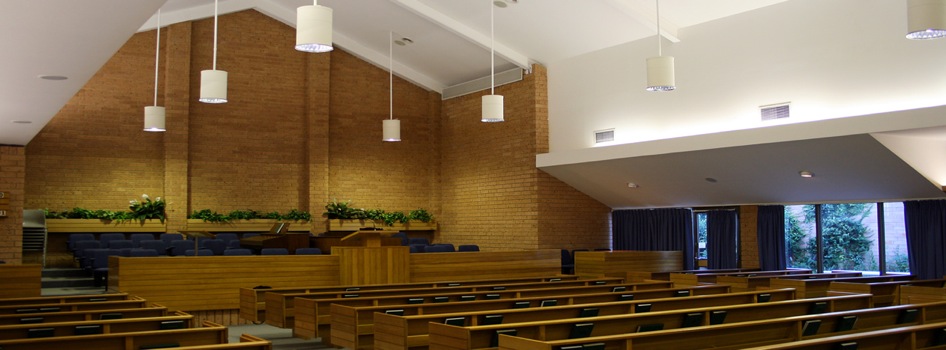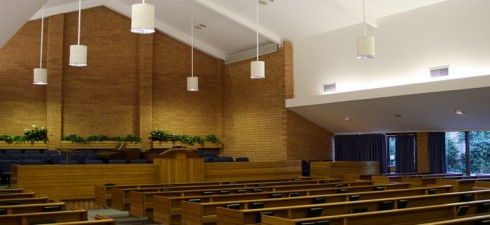
Last Sunday, I gave a talk in Sacrament Meeting. It had been four years since I had been asked to speak, so believe it or not, I was excited about the assignment. Even better? My topic was “Getting the Most Out of Sunday School.” I am a Sunday School teacher, so that seemed right up my alley.
In a spirit of recycling, I thought I would share most of the talk I gave in church last Sunday … here today. (You thought church was over for the day? Ha!) At the end, you can turn in your hymnal to page #233 and sing a rest hymn in the comfort of your own home.
Though gospel instruction took place in both Kirtland and Nauvoo, the first official Sunday School was held Dec. 9, 1848 in the Salt Lake City 14th ward. In 1867, the organization expanded and was named Parent Sunday School Union, though only children attended. (Hmm… an appropriate name?) In 1872, it was renamed Deseret Sunday School Union. Adult classes were added in 1904. So here we are, one hundred and seven years later! How is it going?
Since I was asked to speak about getting the most out of Sunday School, I wanted to identify what does and does not work, and so I conducted a very informal and highly unscientific poll on Facebook. Here are some of the things my friends mentioned as weaknesses in Sunday School classes:
*Other people talking too much in personal conversations
*Recycled commentaries and perspectives year after year
*People spewing political views
*Reading aloud for a billion verses and equating that with participation
*Some people feeling intimidated or not valued by the instructor or other students
*The same people commenting over and over again without any self-awareness
*Questions with totally obvious answers that no one wants to answer
*Teachers shutting down or failing to encourage thoughtful participation
In light of such dismal experiences, I thought of six ways that scripture study, specifically scripture study related to Sunday School, has benefitted me, and will share them in a spirit of improving the whole scripture/study experience.
1) Reading the scriptures, especially in a methodical/chronological pattern has enhanced my “big picture” point of view of what the gospel means. One of my quibbles with Mormon culture is the way we sometimes make things small and tidy and neatly packaged. Scripture study can reveal scope and majesty and messiness again.
2) Reading helps to temper what Wendy Watson called “the sin of certainty.” Certainly reading reminds me to be humble and confirms that I do not in fact know everything. If we are using the scriptures as a hammer to pound others, we’re doing it wrong. They should be instructing us.
3) Reading the collected standard works gives me a wonderful sense of fellowship with this enormous family of believers that spans generations. Our church is a chapter in the great gospel narrative, but not the only chapter by a long shot. The more I’ve read in the Bible, for example, the more my eyes have been opened. Even as I study how the standard works came to be, I’ve learned a great deal about this family of believers. For example, I am inspired by the story of William Tyndale, the British martyr who gave his life in the cause of translating the Latin scriptures into common (albeit gorgeous) English. We shouldn’t study the King James Version without thinking of Tyndale. There are many other admirable men and women we can meet in the scriptures.
4) Sunday School scripture study can be an antidote to the plague of perfectionism that troubles many in our church. (This plague may have inspired at least part of Stephen Robinson’s Believing Christ.) We need only read about Moses, David, Peter, Paul, Joseph Smith and other flawed humans (men?) who desired communion with God despite their failings and shortcomings to know this: there is definitely room in the work for everyone. I love that the scriptures can show us what it is to be a work in progress.
5) Thorough scripture study helps us to recalibrate our gospel understanding and steers us away from the practice of prooftexting. Combining our own limited knowledge with other ward members who may know more than we do on a particular subject can add to our understanding.
6) Scripture study, for me, encourages a more personal relationship with God. In particular, this year’s course of study – the New Testament – and my readings of the four gospels have brought Jesus’ teachings and example and loving ministry into such clear focus, I’ve been deeply moved and touched!
So what can ward members do to make Sunday School a less torturous experience? I have just a few ideas, starting with this one: let go of guilt about reading the scriptures in a particular way or pattern. Some people are natural readers while others prefer to learn in different ways. Find a way that works for you and let go of ideas of the “right” way to study. Explore other translations, other spiritual books, online media, podcasts, illustrated versions of the Book of Mormon or audio files if those avenues will benefit you more.
I think that at-home preparation for Sunday School is akin to a coat of primer paint, the first coat, if you will, that can be added to by a positive gospel discussion. Elder Eyring says that the Spirit often gives more than the speaker, so that even in a dreary class, your own mind might be filled with ideas. Additional readers and discussions will add coats of paint to your primer, filling in the color!
Many years ago, I attended a workshop on understanding one’s dreams. The first lesson was that people who pay attention to their dreams dream more. Brilliant! The more you pay attention to your own mind, the more it talks to you. I think the same idea holds true in scripture study. The more you think and pay attention to your thoughts, the more thoughts will come.
In fact, my final suggestion is that we should do more to trust ourselves and our insights as we study the scriptures and apply them to ourselves. As Paul taught regarding the Children of Israel in 1 Cor. 10:11: “Now all these things happened unto them for ensamples: and they are written for our admonition.” Scriptures should assist us, not merely confuse us.
One friend commented on my FB wall that she felt discouraged when a Sunday School lesson doesn’t provide anything meaningful: “It’s disappointing when I can walk away and leave the lesson in the room instead of taking it with me.” Perhaps we can approach Sunday School like a potluck, a feast (“fat free,” in the words of Wendy Watson) to which we contribute and by which we are fed. The combined efforts of the teacher and the class can be something that brings us closer to Jesus and closer to each other.
Amen.
So … does anyone here happen to play the organ? If so, let’s start that rest hymn!
;

Erin, I love that you acknowledged the elephant in the room– that sometimes SS is really bad, or at least bad for some people in the congregation. There’s a very common tendency to make it sound as though anyone who’s unhappy with SS (or other programs in the church) has a problem, or is unrighteous, but really, some meetings are just plain bad. And, the portion where you discuss scripture study and its benefits, rather than you say that it’s something we have to do to be obedient is also refreshing.
Great talk, Erin! I particularly liked this point:
I think the way we read scriptures in Sunday School probably prevents us from confronting the reality of our uncertainty. I’m guessing that the reading assignments are typically carefully chosen to avoid anything too controversial. (But I could be wrong; I haven’t looked at what the Sunday School reading assignments actually are for a long time! [speaking of a misplaced sense of certainty…])